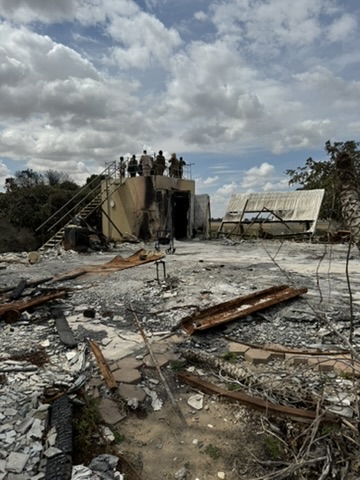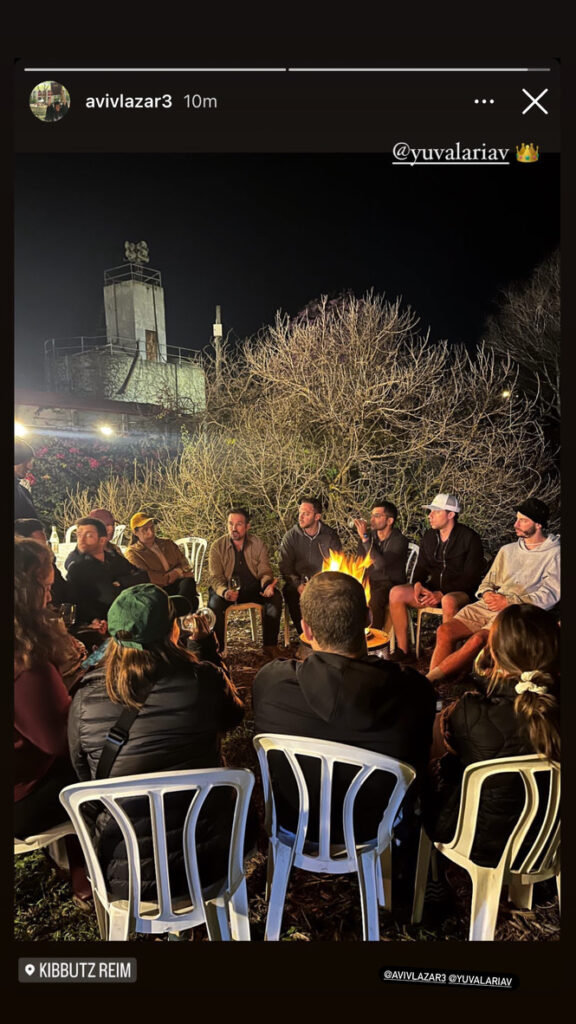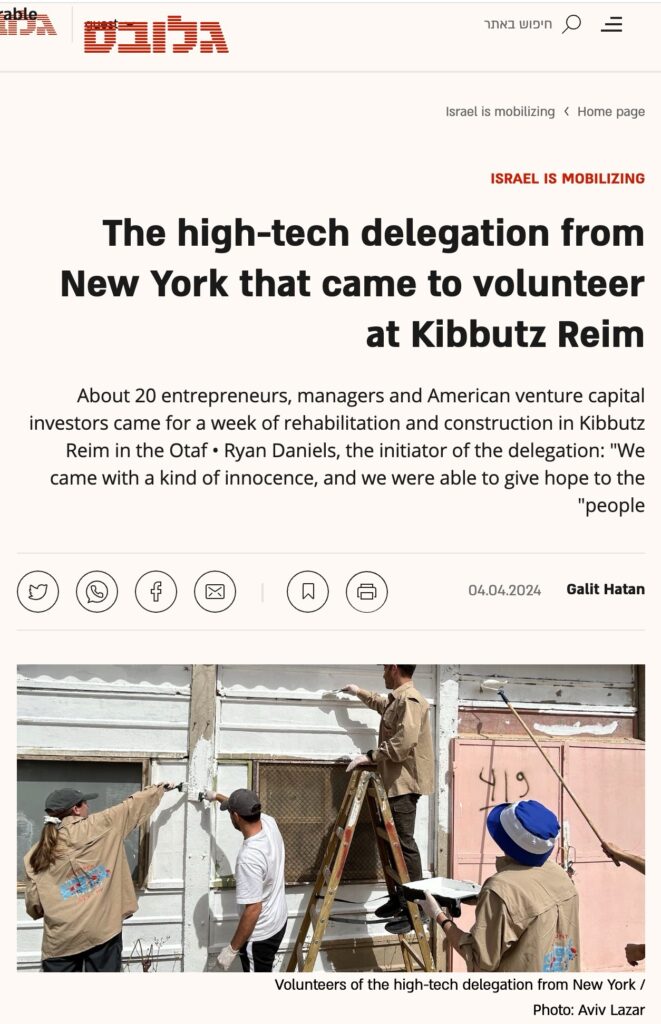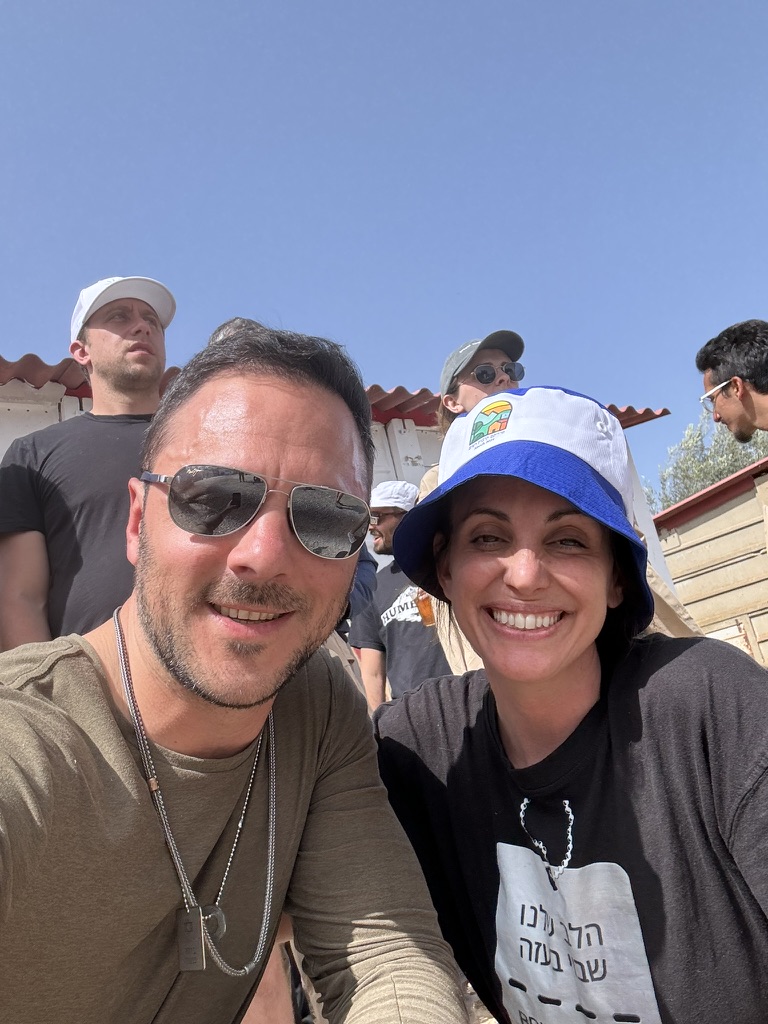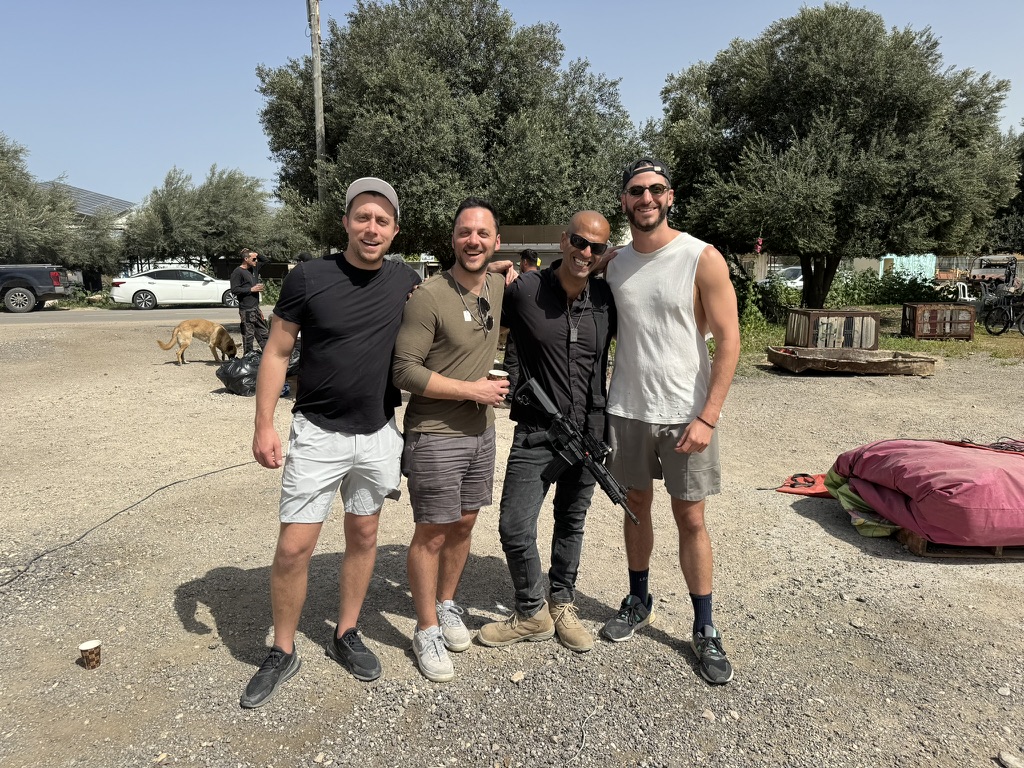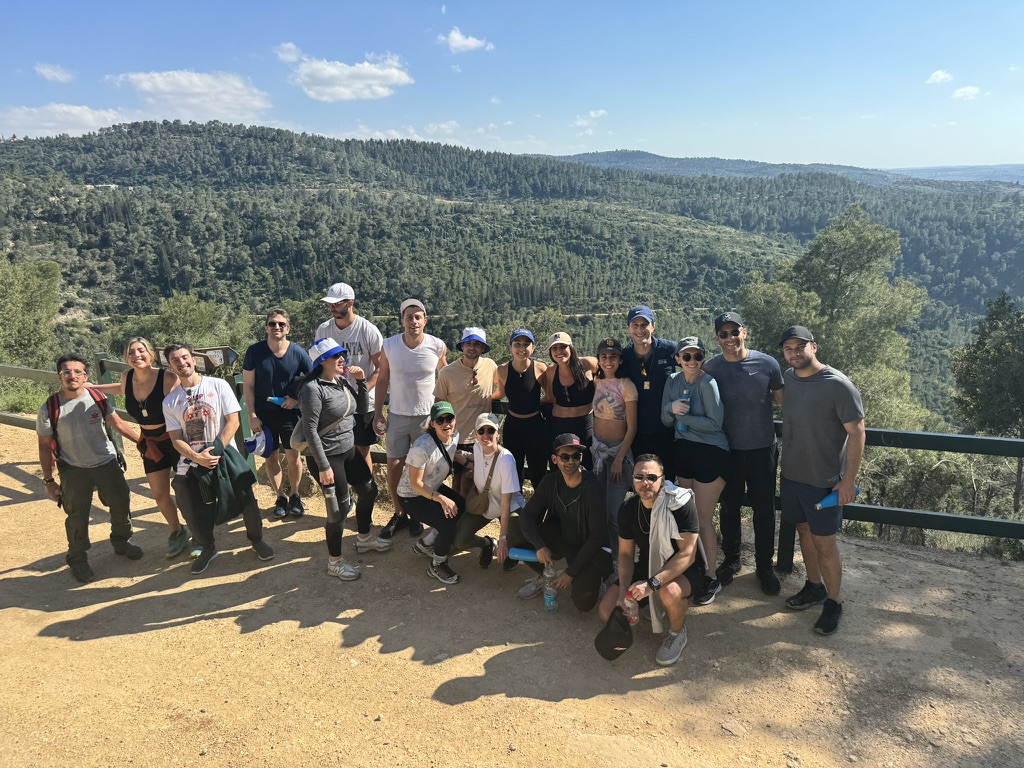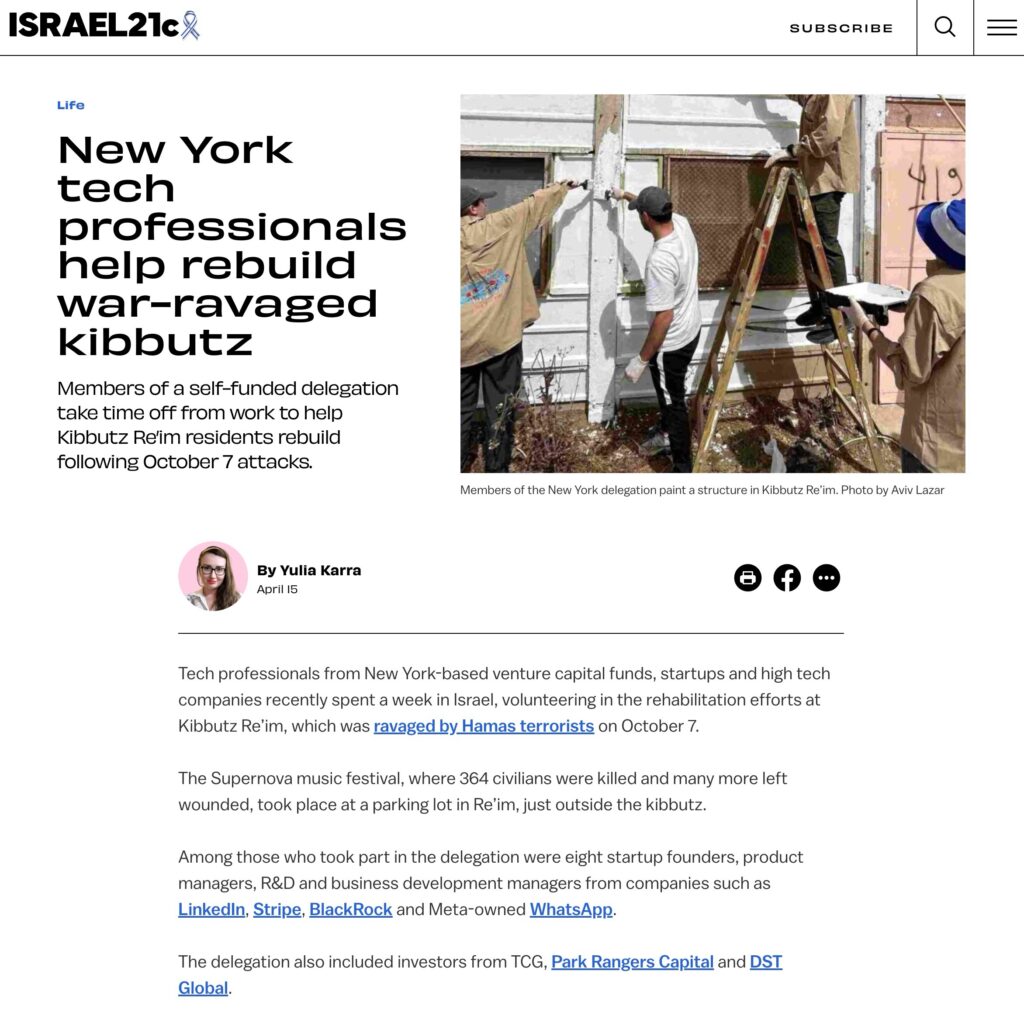The Reich Hebrew Academy Event At My House
Last night, we hosted an event at my house to share what we have learned on our recent trip to Israel and the plight of the Jewish people, what we are doing to combat antisemitism, and kick off “The Path to the Future” fundraising for The Reich Hebrew Academy.
We were joined by good friends including Emily Austin and Joe Teplow who shared their experiences over the past few months.
The full speech I gave is below.
If you’d like to help make this a reality, please donate here.
**** The speech ****
I’ve spent most of the months since October 7th, learning, engaging, and assessing for my own eyes, what’s really going on and where we go from here.
I helped organize one of the first screenings of the October 7th footage in New York City outside of the UN. We got permission to do this from the Israeli government because they believed, as we did, that if we positioned a video of massacres against “humans” instead of Jews, it wouldn’t be so political and would get more viewership. Leandro is here with us. He helped coordinate that viewing.
I went to Israel to bear witness, see the site of the massacres, meet with family members of the deceased and hostages, and help rebuild Kibbutz Reim, which is where the Nova festival was. With IDF artillery firing off every fifteen minutes or so, and only a few kilometers from the Gaza border, we met up with 4 childhood friends from the Kibbutz to take on a rebuilding effort. The goal was to build a communal wine center to catalyze community and get people back south. It was actually the first time since 10/7 that people moved back home. I remember a young mother pushing her stroller with her baby in it, with either side of the street made up of burnt, bullet-ridden, homes. Some of which were used by Hamas to rape some of the women from Nova, right before Hamas killed them. That was probably the first stroller at the kibbutz since October 7th. One of the friends they were doing this for, the rebuilding effort, was the 5th friend of the group. They thought he was being held hostage the whole time and believed like many of us, with enough pressure and advocacy, we could get him and other hostages home. Well, just two weeks ago we learned that he wasn’t held hostage but was murdered on the seventh. It’s just taken months to identify him. Can you imagine what must be done to a person so that it becomes impossible to identify them for months? Dolev leaves behind his wife Segal and four children. My friend Josh, who is with us today, is going back to Dolev’s Kibbutz in a few weeks to continue the revitalization efforts with Dolev’s friends and family.
I’ve met with leaders here in the US, like the CEO of the ADL, Hillel International, my fellow board members at UW-Hillel Wisconsin, and the new incoming CEO of AIPAC to understand in greater detail some of the domestic issues we are having. None of this will surprise you. Hate crimes have increased by over 500% since October 7th. If you’ve paid any attention to social media or the congressional hearings at all you’ll see with your own eyes the assault Jewish college kids are under, especially at Ivy League compasses when “context” is required to figure out if genocide against Jews is acceptable or not. Could you imagine being in school as one of these students right now? If I told you “the era of extreme Jewish intellectualism is now at an end” you wouldn’t be able to tell me if that was a history teacher at Harvard or Colombia or Joseph Goebbels in 1933 in Berlin’s Opera Square. Hint, it was not the teachers.
And in two days, I’ll be heading back to Israel on a delegation to meet with President Herzog and members of Knesset in Jerusalem. On my way there, I’ll be checking a bag on the plane with 4 drones and giving them to an IDF soldier upon arrival so they can increase their eyes and ears in the north in preparation for what will likely be another front against Hezbollah. And by the way, two days ago operational plans for an offensive in Lebanon were approved and validated by the IDF generals.
These are just a few things I’ve been a part of but I just share this to give you a sense of the recent perspective I have.
Of everything though, there was one moment that still reverberates loudest in my mind. It’s part of the reason you are all here today.
On our trip to Israel, we met with Ari Shavit at a VC’s office in Tel Aviv. Ari is an Israeli reporter and writer. He was a senior correspondent at the left-of-center Israeli newspaper Haaretz is the author of the 2013 New York Times Best Seller My Promised Land: The Triumph and Tragedy of Israel. He was describing his view on the war and the four parts or phases going on now.
In the first phase, which the entire world is fixated on, we see the war between Israel vs. Hamas. This is the loudest flashpoint and the one that most easily personifies the David vs Goliath where the almighty Israel, far outpowers the tiny and incapable Palestinian people.
In the second phase, one that gets much less attention is the broader conflict. It’s not just Israel vs Hamas, but Israel and the West vs Iran, Hamas, Hezbollah, Syria and Yemen, with all of them firing rockets into Israel. And if there was ever any doubt of Iran’s involvement, we all saw it with our own eyes on the evening of April 13th when Iran launched a drone and missile attack on Israel consisting of over 200 rockets and drones.
Even now, there are over 100,000 people from northern Israel who are displaced from their homes due to the ongoing assault by Hezbollah in the north.
And even worse, in the third phase, we see that we are in a new Cold War between Israel, US, Ukraine, Taiwan on one side and Russia, Iran, and China on the other side. And if you’re not sure these things are connected just think, Iran has been providing drones to Russia while the US is providing drones to Ukraine. And just two weeks ago China launched military drills around Taiwan. Taiwan, the place responsible for the majority of the world’s precision chips used for precision weapons, at a time when the world’s greatest superpowers are quickly depleting their stockpiles in Ukraine and the Middle East. These things are all connected and the hot wars are indeed getting hotter.
And then there is the fourth phase. The most important phase. The ideological information war and its most important target: America.
Sinwars aim is to make Israel another South Vietnam. For anyone who remembers that time, you may recall that the way the guerrilla warriors won the Vietnam War was not through rice fields but through the American public. It was the visual carnage that swayed political decisions much like how we see dead babies and demolished buildings in Gaza all over media. I get it. It’s painful to look at. Even for me, a Jewish, first responder, who knows exactly what’s happening, it’s still horrible to look at.
But the thing that left me the greatest impression is this..
Ari said,..
“I’m not afraid of losing the war in Gaza. But I am afraid of losing the war in Boston.”
And I thought, and knew, but didn’t say..
We are losing…
In Boston, in California, in New York, in London..in New Jersey.
If you spend any time on social media or on media in general, it’s easy to feel this way.
The protests, the hate crimes, the congressional hearings.
Two weeks ago right here in New Brunswick, a Jewish group of students were omitted from a NJ school yearbook photo, replaced with Muslim students. Could you imagine the outrage if that happened to black kids? Asian kids? Gay kids?
And sticking with New Jersey for another moment..
In April, Students at Rutgers voted overwhelmingly to call on the administration to divest from companies and organizations that do business in Israel and to end a partnership with Tel Aviv University. With 8,000 students out of the 44,000 enrolled at Rutgers’ New Brunswick campus voting, 80% of participating students said the university should “divest its endowment fund from companies and organizations that profit from, engage in, or contribute to the government of Israel’s human rights violations.”
On a separate question, 77% of students called for the termination of the partnership with Tel Aviv University, including in the New Jersey Innovation and Technology Hub,” a planned, future educational and research collaboration project that Rutgers and Tel Aviv University entered into in 2021.
I could go on, but these are just two of many examples of the assault on our schools.
You’ve all seen instances like this and more.
Today. In the United States of America. In 2024.
And this was not by accident.
This hot war in the Middle East has been in the works for years, with an information war taking place right beneath our feet, hiding in plain sight and is the set up for what we are seeing now. It’s been taking place for decades and is still happening now.
Did you know for over a decade, American universities have been the recipients of financial gifts from special interest groups? Here are just a few of my favorites:
Since 2012:
- The Palestinian Authority has given over $1 million to American Universities
- Syria: $1.3mm
- Pakistan: $6.4mm
- Lebanon: $21mm
- Iraq: $45mm
- Russia: $141mm
- Saudi Arabia: $1.5 billion
- China: $1.7 billion
And my favorite, Qatar, the place that Hamas leadership calls home and lives comfortably while dictating orders to Sinwar and Hamas in Gaza, $3.2 billion.
In the last 9 Years, US Universities Accepted Gifts totaling $19 Billion From Authoritarian Countries like these including, of course, Qatar, China, Saudi Arabia.
And when you mix in state-owned and operated technology platforms like TikTok, yes, it is state owned by China and it is being manipulated by China, you have the perfect storm and tailwinds for an all-out information war against our youth and Western society as a whole.
Our adversaries know this.
The battle for hearts and minds is the most important aspect of this war and any war throughout history. It’s why the Nazis had the role of “chief propaganda officer” with Goebbels, and why the term “Pallywood” makes its rounds on social media. Our enemies know that if they can brainwash the youth, in just a few years time, they will be our doctors, or lawyers, our police officers, and our elected officials.
Actually, I was with the new CEO of AIPAC yesterday and he corrected me. He said it’s worse. Not just a few years but things could be much worse as soon as next year given the escalation in political battlegrounds with candidates far worse than Ilan Ohmer or AOC.
And if you don’t believe me, consider that my friend Lenny Wilf just last week told me that his father, a holocaust survivor, would always say..
In 1929, the best place in the world for Jews was Germany.
Or Jonathan Greenblatt, CEO of the ADL told me, his father-in-law lived the greatest, most prosperous life until he had to flee…Iran.
“It could happen here.” That’s the title of Jonathan’s book. And he’s right.
But there is good news.
And there is a path forward..
Information, education, and truth is the best disinfectant against lies and it’s the best way to bring light into the darkness.
We know how to do that. We know how to educate. And we know how to turn education into world-changing moments and milestones.
As of 2023, at least 214 Jews or people with at least one Jewish parent have won the Nobel Prize or the Nobel Memorial Prize in Economic Sciences, representing 22% of all recipients. This is despite Jews making up only 0.2% of the world’s population. In simple terms, the Jewish share of winners is 110 times greater than their proportion of the world’s population.
Or, consider the economic growth that has come out of the tiny jewish State of Israel. Israel ranks #7 in the world for creating the most unicorns or billion-dollar plus companies, has more than 100 companies listed on US exchanges, with a combined market cap of more than $150 billion, and has the fourth most companies listed on the Nasdaq after the United States, Canada, and China. There is a reason Israel is called the Startup Nation.
Or lastly, let us consider one more example in another moment in time. In 1852, New York City, Jews faced discrimination and were often not welcomed at hospitals. Jewish philanthropists got together and founded Mount Sinai, as a safe haven and medical facility for their community. Today, Mount Sinai is one of the leading healthcare institutions in the world, serving all citizens, of all religions, ethnicities and backgrounds. It’s is a shining example of “Tikkun Olam” and a playbook for building institutions that simply make the world a better place while simultaneously taking care of our own.
It’s this ethos that has allowed me to host all of you here, in this wonderful home.
Because being educated, being ethical, being moral, and being good, is how we as Jews have thrived, and more importantly, it is how we’ve survived.
And so I’ll leave you with a quote from Mark Twain, who attempted to figure this out in 1897, well before modern-day Israel existed.
He said..
“If the statistics are right, the Jews constitute but one quarter of one percent of the human race. It suggests a nebulous puff of star dust lost in the blaze of the Milky Way. Properly, the Jew ought hardly to be heard of, but he is heard of, has always been heard of. He is as prominent on the planet as any other people, and his importance is extravagantly out of proportion to the smallness of his bulk.
His contributions to the world’s list of great names in literature, science, art, music, finance, medicine and abstruse learning are also very out of proportion to the weakness of his numbers. He has made a marvelous fight in this world in all ages; and has done it with his hands tied behind him. He could be vain of himself and be excused for it. The Egyptians, the Babylonians and the Persians rose, filled the planet with sound and splendor, then faded to dream-stuff and passed away; the Greeks and Romans followed and made a vast noise, and they were gone; other people have sprung up and held their torch high for a time but it burned out, and they sit in twilight now, and have vanished.
The Jew saw them all, survived them all, and is now what he always was, exhibiting no decadence, no infirmities of age, no weakening of his parts, no slowing of his energies, no dulling of his alert but aggressive mind. All things are mortal but the Jews; all other forces pass, but he remains. What is the secret of his immortality? “
Well, I’ll tell you that secret…
When our enemies teach their kids to praise death, we teach our kids to praise life. And to live good, educated, loving, fulfilling lives. That’s what The Hebrew Academy has done for me, continues to do for others, and hopefully with your help, will continue to do for years to come.
Together, we can and we must continue to invest deeply in the next generation to ensure our collective legacy and story carries on.
Ldor v’dor.
From generation to generation.
That’s the secret.
Thank you
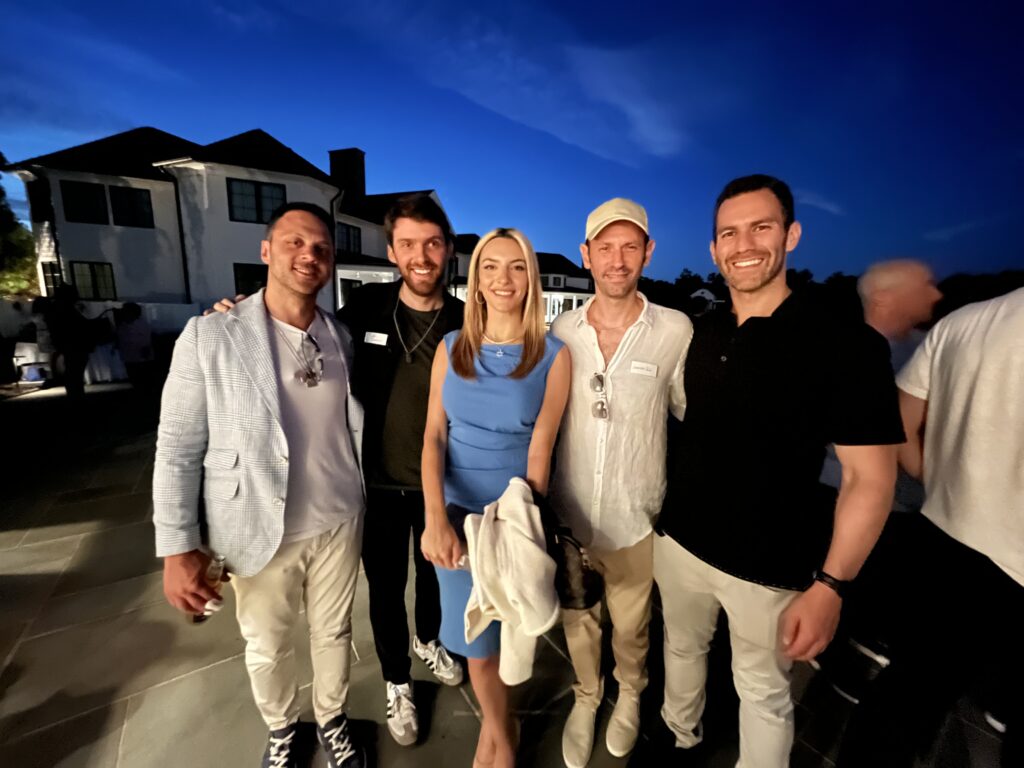
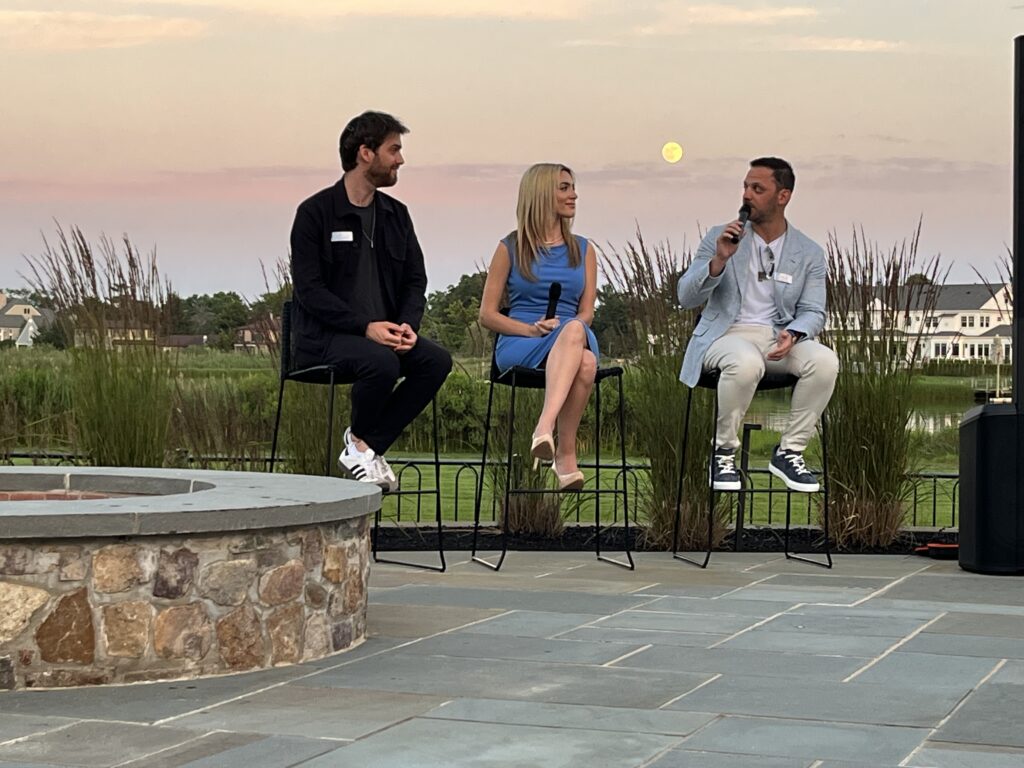
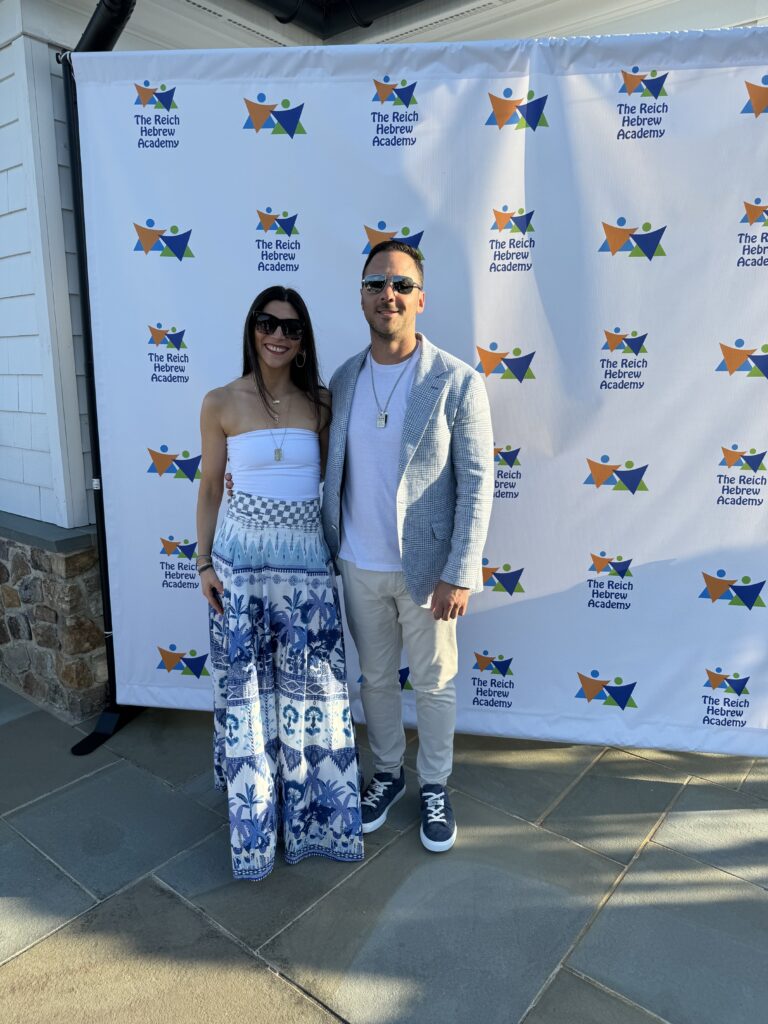


And here is the original announcement of the new school.
If you’d like to help make this a reality, please donate here.





